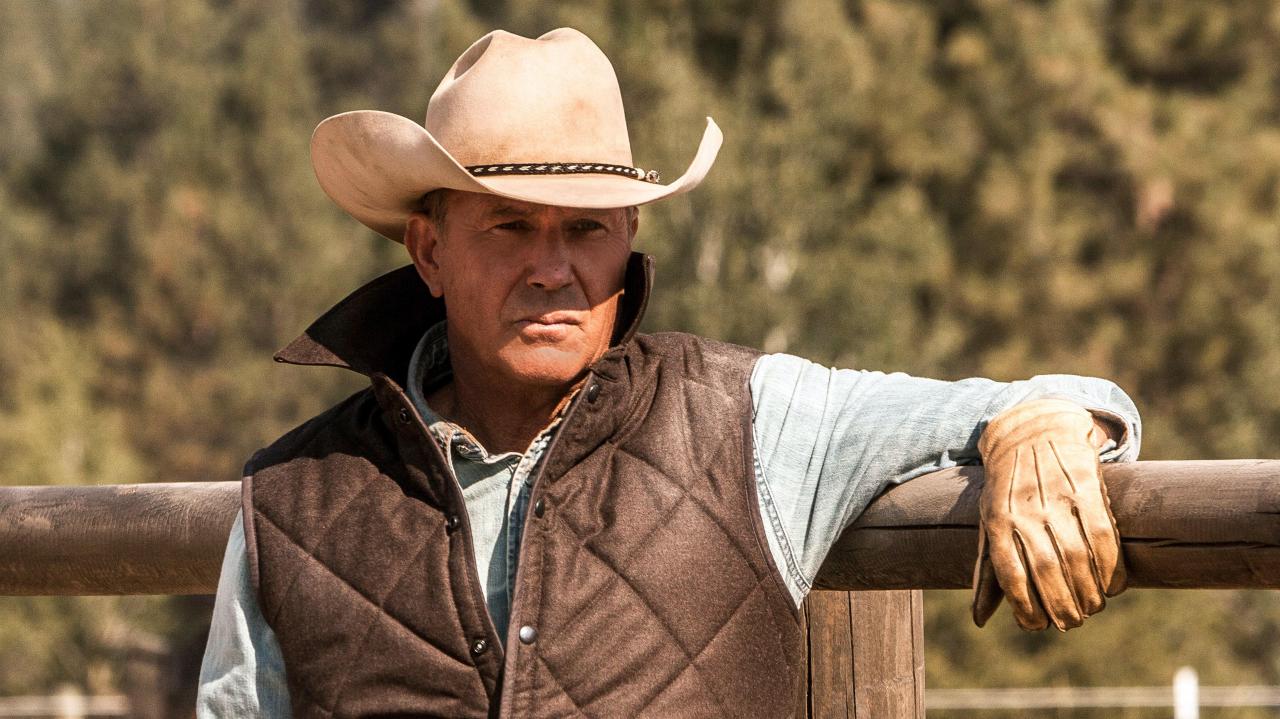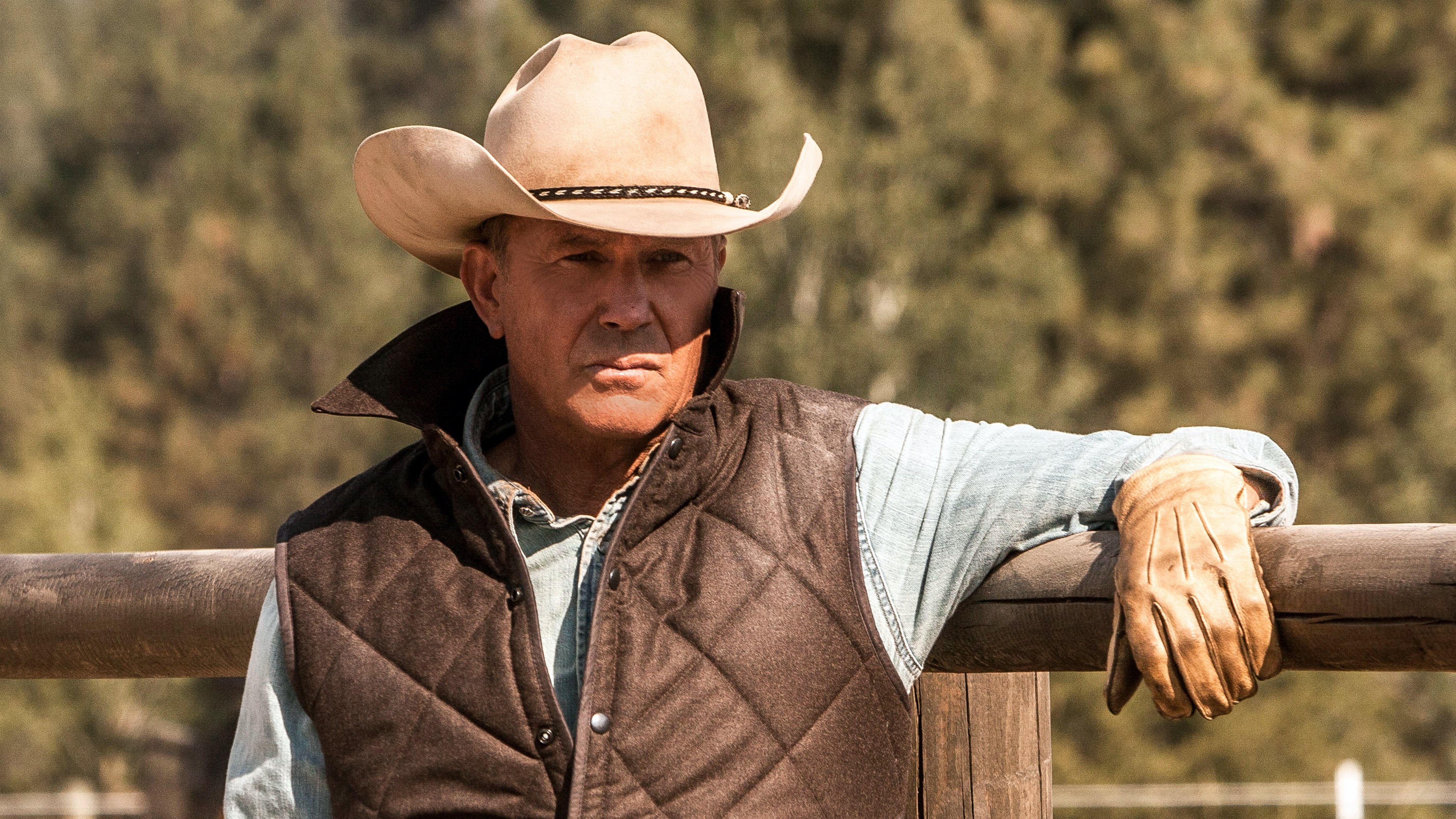Marvel is at death’s door. What’s next? Some say we can track an incoming recession by the length of women’s skirts, others by the popularity of dance music. Film, as the composite of a million images, comes out as a more sophisticated forecaster – and not just of the economy, but of lifestyles and mentalities. Styles rise and fall with the times. They’ve been doing so since the early days of commercial cinema.
A cowboy craze has already spread to TV
Take the original shift from film noir to Western. Noir, which peaked in popularity in the latter half of the 1940s, dealt with the leftover anxieties of world war two. Sometimes this was obvious: in Orson Welles’s The Stranger, a Nazi war criminal descends on a peaceful Connecticut town. Sometimes the Teutonic skulked at a deeper level. The most memorable noirs dealt in a dark, symbolic sensuality, as if the Brothers Grimm had received convenient injections of Jung and Freud. A clear example is Hitchcock’s Spellbound, where psychoanalysis takes the place of detective work. Finally the postwar neurotic could see himself on screen. Even the looming shadows and claustrophobic angles were German, lifted from Expressionist silent films like Nosferatu and Dr Caligari.
By the early 1950s, denazification was over, and the States were ready to assert themselves in the face of an increasingly aggressive USSR. Joseph McCarthy led a relentless campaign against the anti-American. The cowboys of the Wild West harked back to America’s pioneer days and, in roaming free about the plains, symbolised real-life expansionism. The Western explosion coincided with the new popularity of CinemaScope, a widescreen technology which allowed for the capture of seemingly unending landscapes. See John Ford’s The Searchers, famous for its blue skies and open plains. Horses scatter across the screen. Never had there been such a dramatic contrast to the claustrophobia of film noir.
Genre shift continues. Spies morphed into cops and cops became superheroes, dredged up from comic books to occupy an unaccountable proportion of screens around the world. Marvel’s film franchise grew during the Obama years, all eight of which were spent warring, alternately, with Iraq and Afghanistan. Captain America, an anti-Nazi invention of the 1940s, came back to the screen. Heroes teamed up like the wartime Allies.
Perhaps there’s some correlation between the box-office death of the superhero and the fall of print media. A financial imperative for clickbait meant that global events became earth-shaking, us-against-them narratives. First there was the 2016 US election. The Guardian ran a speculative cartoon where Trump’s first presidential term ended in widespread famine and nuclear fallout. Sales of dystopian fiction skyrocketed. Remarkably little actually changed.
Then it seemed that the Covid-19 era marked a superhuman battle between a collective good and an ultimate evil. ‘The Avengers are doing their part to help keep us safe,’ said a character in a comic book produced, unbelievably, as part of a collaboration between Marvel and Pfizer. ‘Now it’s time for us to do ours… by staying up to date with Covid-19 vaccinations.’ When Russia invaded Ukraine, the pandemic all but slipped from public parlance. Any superhero would feel dejected. Meanwhile, America had lost the war in Afghanistan.
PBS tracks a recent decline in pro-immigration sentiment among American voters. A similar shift has occurred in Canada. Couple this with a growing trend for ‘homesteading’: North American consumers may be more interested in reinforcing historical claims to ancestral land than in fighting fantastical villains. After the confinement of lockdown, Americans and Brits delight in the opportunity to go outside. As in the early 1950s, their worldviews are shifting to widescreen. Vive la Western, for a second time.
A cowboy craze has already spread to TV. New Netflix miniseries American Primeval promises to be a ‘gritty and adventurous exploration of the American West’. Yellowstone co-creator Kevin Costner is working on Horizon, a franchise of four Western films. Its first two instalments will come out this summer. We’ve already had The Power Of The Dog. New Westerns may well sidestep the historical realities of the old West (look at the NFL: the Washington Redskins are now the Washington Commanders). But it’ll be interesting to see the American founding myth on the big screen again, and to do away with capes and CGI.







Comments